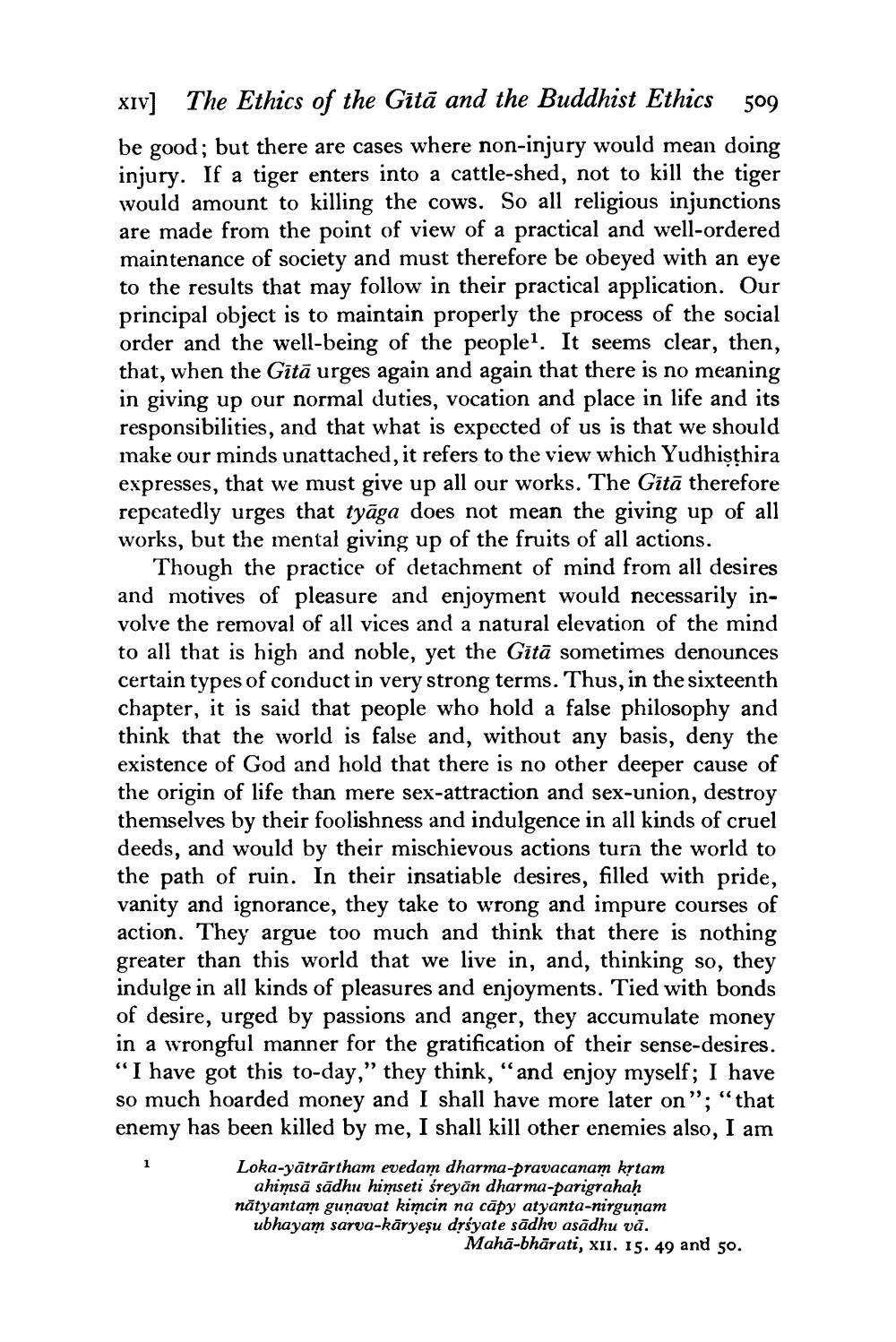________________
xiv] The Ethics of the Gitā and the Buddhist Ethics 509 be good; but there are cases where non-injury would mean doing injury. If a tiger enters into a cattle-shed, not to kill the tiger would amount to killing the cows. So all religious injunctions are made from the point of view of a practical and well-ordered maintenance of society and must therefore be obeyed with an eye to the results that may follow in their practical application. Our principal object is to maintain properly the process of the social order and the well-being of the people. It seems clear, then, that, when the Gitā urges again and again that there is no meaning in giving up our normal duties, vocation and place in life and its responsibilities, and that what is expected of us is that we should make our minds unattached, it refers to the view which Yudhisthira expresses, that we must give up all our works. The Gītā therefore repeatedly urges that tyāga does not mean the giving up of all works, but the mental giving up of the fruits of all actions.
Though the practice of detachment of mind from all desires and motives of pleasure and enjoyment would necessarily involve the removal of all vices and a natural elevation of the mind to all that is high and noble, yet the Gītā sometimes denounces certain types of conduct in very strong terms. Thus, in the sixteenth chapter, it is said that people who hold a false philosophy and think that the world is false and, without any basis, deny the existence of God and hold that there is no other deeper cause of the origin of life than mere sex-attraction and sex-union, destroy themselves by their foolishness and indulgence in all kinds of cruel deeds, and would by their mischievous actions turn the world to the path of ruin. In their insatiable desires, filled with pride, vanity and ignorance, they take to wrong and impure courses of action. They argue too much and think that there is nothing greater than this world that we live in, and, thinking so, they indulge in all kinds of pleasures and enjoyments. Tied with bonds of desire, urged by passions and anger, they accumulate money in a wrongful manner for the gratification of their sense-desires. “I have got this to-day,” they think, “and enjoy myself; I have so much hoarded money and I shall have more later on"; "that enemy has been killed by me, I shall kill other enemies also, I am
1
Loka-yātrārtham evedam dharma-pravacanam krtam
ahimsā sādhu himseti śreyān dharma-parigrahah nātyantam guņavat kimcin na cāpy atyanta-nirguņam ubhayam sarva-kāryeșu drsyate sādhu asādhu vā.
Maha-bhārati, XII. 15. 49 and 50.




